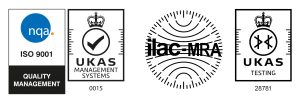This month, the BBC reported that Amazon had been found guilty of attempting to ship lithium batteries and flammable aerosols by air.
Both lithium batteries and flammable aerosols are classified as dangerous goods and, as such, are governed by dangerous goods regulations.
The prosecution, brought by the Civil Aviation Authority (CAA), highlights how transportation breaches in relation to dangerous goods are handled by member states. The huge £65,000 fine imposed is the latest of many fines brought by authorities across the world and should be the wake-up call that businesses need to hear. No organisation, regardless of size, is exempt from dangerous goods regulations and the CAA’s decision to prosecute in this instance proves just that.
Kate Staples, general counsel for the CAA, said:
There are important international and domestic restrictions to prohibit the shipping of certain goods that pose a flight safety risk.”
“These dangerous goods include lithium batteries, which are banned from being transported as mail or cargo on a passenger aircraft unless they are installed in or packed with equipment.
Martin, Goudie, prosecuting, told the court:
Under the right circumstances the batteries, even new, undamaged batteries, could overheat, potentially causing burns, explosion or a fire.
Lithium batteries continue to dominate dangerous goods news, despite the evolution of dangerous goods regulations aimed at eliminating risk. As providers of UN packaging, we have argued for better education for dangerous goods professionals, and this and other past cases of dangerous goods breaches highlight the need for such training to be carried out.
Are you involved in the transport of dangerous goods by air, road or sea? If you’re unsure about your requirements in relation to lithium batteries – or any other dangerous goods – get in touch with our team who will be more than happy to provide expert advice and guidance.
Information correct at time of publishing, 27th September 2016
 UK
UK


